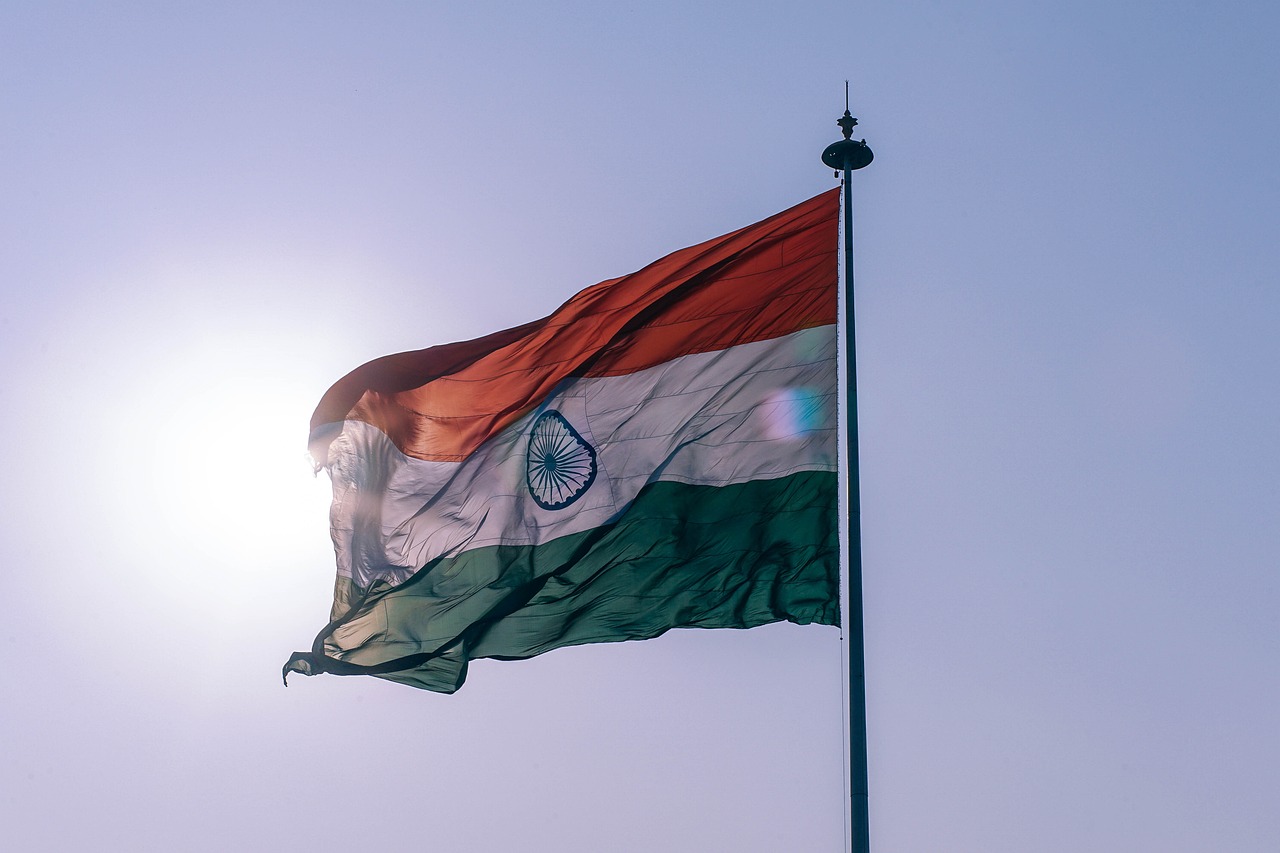
Ada Dyndo conducts an interview with Shairee Malhotra on India’s role in G20. Shairee Malhotra serves as a Coordinator of the T20 India Taskforce on Reformed Multilateralism for India’s G20 presidency.
Ada Dyndo: How would you explain India’s focus on the Global South during its G20 presidency?
Shairee Malhotra: The Global South has been a key focus during India’s G20 presidency. While it is understandable that the Russia-Ukraine war is a major concern globally, there are equally pressing challenges confronting the world including climate change, supporting the SDGs, and debt crises. Many of these challenges disproportionately impact nations of the Global South that represent 85% of the world’s population and require urgent attention. India’s goal was to have a constructive G20 aiming to collaborate on issues that pertain to development and impact most of humanity. In this context, India hosted the Voice of Global South Summit to amplify issues confronting developing countries. At the same time, India has also increasingly acted as a “bridge” between the North and South.
Ada Dyndo: What, according to you, could be the most lasting legacy of India’s G20 presidency?
Shairee Malhotra: India’s G20 presidency has had a unique focus on Africa in tandem with its broader focus on the Global South. PM Modi has pushed for full G20 membership of the African Union – a crucial step towards reforming multilateralism. This is conceptually feasible, since the European Union is already a member of the G20.
The logic is simple and sound – a Union of 55 countries with a population of over 1.3 billion people cannot be marginalised in a forum where global challenges such as sustainable development, economic recovery, and climate change – many of which disproportionately affect the African continent – are being deliberated upon. To contextualise, the EU has a population of less than 450 million. To enhance the legitimacy and effectiveness of the G20 as well as empower the African continent and its immense potential, the inclusion of the African Union as a G20 member is an important step towards a more representative global governance architecture. The G20 decision-making process is based around consensus between all member states. If the remaining countries agree with India’s proposal, this would be a crucial legacy from India’s G20 presidency.
Ada Dyndo: India identified several priorities for its G20 presidency. What are the three most important ones from the perspective of EU-India cooperation?
Shairee Malhotra: I think multilateral reforms, and energy transition and climate change are two important areas from the perspective of EU-India relations. These are key priorities on both the G20 agenda as well as the EU-India agenda and India’s bilateral ties with EU member states.
The Paris Agreement increased EU-India convergence, resulting in climate change becoming a central pillar in the partnership. Since then, India and Europe are working together through a number of bilateral agreements with the EU but also member states such as Italy, Germany, Sweden, in renewables as well as newer technologies such as green hydrogen. With their collaborative experiences, India and the EU present a compelling case of North-South cooperation, which is a prerequisite to achieving progress on many global challenges.
That multilateralism is in crisis is no secret, and for middle powers India and the EU, multilateral reforms are crucial. India is the world’s fastest growing economy and a stable world order is vital for further growth. The EU is itself a multilateral construct based on the rule of law. China and Russia’s assertive actions and respective weaponisation of trade and energy have only increased the need for an effective rules-based order that amongst other goals, secures supply chains and enables an open and stable Indo-Pacific region through which a majority of world trade now transits through.
Ada Dyndo: How is India contributing to the peace efforts in Ukraine?
Shairee Malhotra: India has condemned the conflict due to its disruptive impact everywhere but particularly on countries in the Global South in the form of the crisis of the three F’s – food, fuel, fertilisers. In sync with this position, India’s focus has been on finding a solution and urging for diplomacy and dialogue to prevail, while reiterating the core principles of the UN Charter of territorial integrity and sovereignty. India has also played a behind-the-scenes role in many instances, such as defusing the situation around Ukraine’s Zaporizhzhia nuclear power plant, and in the UN-led grain deal between Russia and Ukraine. Besides this, India has provided significant humanitarian assistance to Kyiv in the form of medical equipment and other relief supplies. In today’s volatile geopolitical context, India represents a much-needed reasonable voice urging for a return to the negotiating table.
Ada Dyndo: Do you think a G20 joint communiqué from the upcoming G20 Leaders’ Summit will be achievable?
Shairee Malhotra: Wording on the G20 communiqué will be challenging to navigate in a polarised forum, but remember it was PM Modi’s statement that “today’s era is not the era of war” that made its way into the final communiqué at the G20 summit in Bali last year. India is on the side of peace and will try to navigate the communiqué in sync with its position and focus on finding a solution to the conflict. Either way, a joint statement is certainly not the only way to measure success. Pushing the needle forward on technical reforms is just as important.
Ada Dyndo: You were involved in Think20 India – an official Engagement Group of the G20 that brings together think tanks and high-level experts to discuss policy issues relevant to the G20. As Coordinator of Task-force 7 (TF7): ‘Towards Reformed Multilateralism: Transforming Global Institutions & Frameworks’, how was your experience?
Shairee Malhotra: Think20 India’s Task-force 7 on Reformed Multilateralism brought together experts from 18 of the world’s top institutions to deliberate reforms for a multilateral order in crisis. This is perhaps amongst the most difficult topics under the G20 ambit given the critical importance of multilateralism on the one hand, and the general cynicism and pessimism that surrounds it on the other.
The work-streams under TF7 included UN reforms, digital governance, WTO reforms and policy coordination between multilateral groupings. It was a wonderful learning experience to coordinate the TF7 deliberations throughout the year and liaise with such eminent global scholars, beginning with the T20 inception conference and culminating in the T20 summit in Mysuru. The policy recommendations are captured in the Taskforce 7 statement, which is available here: https://t20ind.org/wp-content/uploads/2022/11/Task-Force-7-digital.pdf.
These recommendations now need to be translated into action for global governance to become more effective. This will be an ongoing process that will continue as Brazil – another country from the Global South – takes over the G20 baton from India.
On my part, I am extremely grateful for this opportunity and past year to make my small contribution to the nation and India’s G20 presidency.

Shairee Malhotra is Associate Fellow, Europe with the Observer Research Foundation’s (ORF) Strategic Studies Programme in New Delhi.
Shairee has several years experience working in Brussels – the headquarters of the European Union, at the European Institute for Asian Studies (EIAS), and at the European External Action Service (EEAS) – the official foreign policy arm of the EU – where she was selected at a success rate of only 1% for non-EU nationals.
Her writings and views have been featured in Haaretz, Hindustan Times, The Independent, Forbes, The Hindu, WION, EU Observer, Brussels Times, South China Morning Post, The Diplomat, The National Interest, Deccan Herald, LSE, Caravan amongst other prestigious platforms.
Shairee was recently awarded as a Top 40 Under 40 EU-India Leader by the Europe India Centre for Businessu & Industry (EICBI) for shaping the growth of EU-India relations.

Ada Dyndo od ponad dziewięciu lat mieszka w Indiach wspierając polskich i indyjskich przedsiębiorców oraz instytucje. Dzięki znajomości lokalnych realiów, szerokiej sieci kontaktów i doświadczeniu w biznesie oraz komunikacji, oferuje usługi doradcze polskim i indyjskim firmom oraz organizacjom (adadyndo.com). Pracowała w Indiach m.in. jako Kierowniczka Zagranicznego Biura Handlowego PAIH w Mumbaju, Główna Konsultantka w European Business and Technology Centre w Nowym Delhi; obecnie reprezentuje Indyjsko Polską Izbę Gospodarczej (IPCCI) jako Dyrektorka India Desk. Ada jest także założycielką platformy networkingowej WICCI’s India-EU Business Council, wspierając obecność kobiet w biznesie. Ada jest również autorką publikacji o rynku indyjskim i doświadczoną organizatorką misji biznesowych oraz wydarzeń branżowych. Za swoje działania została wyróżniona w gronie Top 40 Leaders Under 40 przez Europe India Centre for Business and Industry oraz nagrodzona Women Leaders Award przez Her Key. Ada jest indolożką z dwoma dyplomami magisterskimi z Uniwersytetu Warszawskiego. Studiowała w Nepalu, Indiach i Tajlandii, zna hindi i urdu. Obecnie mieszka w Puducherry na południu Indii.
czytaj więcej
Adrian Zwoliński dla Kultury Liberalnej: Chiny – biała plama na mapie kampanii prezydenckiej
W kampanii prezydenckiej polityka zagraniczna była traktowana po macoszemu. Szczególnie zaniedbany został wątek Chin, dla których Warszawa jest jednym z kluczowych europejskich ośrodków. Czy Andrzej Duda będzie potrafił to wykorzystać podczas drugiej kadencji?
Adrian ZwolińskiRP: Polska firma produkuje w Indiach w krainie „dobrego Maharadży”
W czasie II wojny światowej maharadża Digvijaysinhji otoczył w swych włościach opieką polskie sieroty ewakuowane ze Związku Radzieckiego. Od kilku lat polska firma MB Pneumatyka produkuje nieopodal podzespoły samochodowe z lokalnymi partnerami.
Krzysztof ZalewskiPółnocnokoreańscy pracownicy w Polsce – spotkanie z dr Nicolasem Levim
Serdecznie zapraszamy na spotkanie autorskie z dr Nicolasem Levim 4 lipca o godzinie 18:00.
Tydzień w Azji #54: Epidemia koronawirusa – strach gorszy od zarazy?
Przegląd Tygodnia w Azji to zbiór najważniejszych informacji ze świata polityki i gospodarki państw azjatyckich mijającego tygodnia, tworzony przez analityków Instytutu Boyma we współpracy z Polskim Towarzystwem Wspierania Przedsiębiorczości.
Azjatech #152: Tworzywo z wydzieliny pazurnic. Naukowcy poszukują zamiennika plastiku
Azjatech to cotygodniowy przegląd najważniejszych informacji o innowacjach i technologii w krajach Azji, tworzony przez zespół analityków Instytutu Boyma we współpracy z Polskim Towarzystwem Wspierania Przedsiębiorczości.
Tydzień w Azji #168: Chiny bliżej Afganistanu. Pomoc nie będzie bezinteresowna
Przegląd Tygodnia w Azji to zbiór najważniejszych informacji ze świata polityki i gospodarki państw azjatyckich mijającego tygodnia, tworzony przez analityków Instytutu Boyma we współpracy z Polskim Towarzystwem Wspierania Przedsiębiorczości.
Chiński renesans: spotkanie autorskie z profesorem Bogdanem Góralczykiem
Serdecznie zapraszamy na spotkanie z prof. Bogdanem Góralczykiem, który już w najbliższy czwartek, 27 czerwca, opowie o chińskiej transformacji oraz o tym jak kształtuje się przyszłość światowego ładu wobec rosnącej siły Państwa Środka na arenie międzynarodowej,
Peace and development as the call of our day again face severe challenges on a global scale, with more prominent instability, uncertainty and complexity
Yiwei WangFilm Yeon Sang-ho Zombie express [1] jest wyjątkowy nie tylko z powodu nowoczesnych efektów specjalnych i apokaliptycznego rozmachu. To pierwszy raz, kiedy w koreańskim kinie przedstawiono zombie apokalipsę[2]. Film w samej Korei obejrzało w kinach aż 11 milionów osób. Z pozytywnym odbiorem spotkał się również ze strony zagranicznych krytyków i publiki. Zombie Express okazał się […]
Roman HusarskiPatrycja Pendrakowska and Paweł Behrendt on navigating Sino-Polish relations
We are proud to annouce, that Patrycja Pendrakowska and Paweł Behrendt made a contribution to the newest project of the Baltic Security Foundation, The Jamestown Foundation and the Baltic-American Freedom Foundation.
Azjatech #119: Sztuczna inteligencja daje przepis na eksperymentalne produkty spożywcze
Azjatech to cotygodniowy przegląd najważniejszych informacji o innowacjach i technologii w krajach Azji, tworzony przez zespół analityków Instytutu Boyma we współpracy z Polskim Towarzystwem Wspierania Przedsiębiorczości.
Przegląd Tygodnia w Azji to zbiór najważniejszych informacji ze świata polityki i gospodarki państw azjatyckich mijającego tygodnia, tworzony przez analityków Instytutu Boyma we współpracy z Polskim Towarzystwem Wspierania Przedsiębiorczości.
Azjatech #172: Półprzewodnikowa potęga Indii rośnie, ale w bólach
Azjatech to cotygodniowy przegląd najważniejszych informacji o innowacjach i technologii w krajach Azji, tworzony przez zespół analityków Instytutu Boyma we współpracy z Polskim Towarzystwem Wspierania Przedsiębiorczości.
Gospodarka Birmy dwa lata po zamachu
Dwa lata temu wojsko przeprowadziło zamach wojskowy w Birmie/Mjnamie. Junta nie zamierza więc szybko oddawać władzy, także nad gospodarką kraju. Jak dotąd radziła sobie gospodarka Mjanmy pod rządami puczystów?
Adrian ZwolińskiTydzień w Azji #242: W Chinach tyka kolejna bomba, która może wywołać potężny kryzys
Przegląd Tygodnia w Azji to zbiór najważniejszych informacji ze świata polityki i gospodarki państw azjatyckich mijającego tygodnia, tworzony przez analityków Instytutu Boyma we współpracy z Polskim Towarzystwem Wspierania Przedsiębiorczości.
Azjatech #50: Tadżykistan ma swój pomysł na walkę z COVID 19
Azjatech to cotygodniowy przegląd najważniejszych informacji o innowacjach i technologii w krajach Azji, tworzony przez zespół analityków Instytutu Boyma we współpracy z Polskim Towarzystwem Wspierania Przedsiębiorczości.
Azjatech #242: Tajwan buduje własną sieć satelitów. W trosce o bezpieczeństwo
Azjatech to cotygodniowy przegląd najważniejszych informacji o innowacjach i technologii w krajach Azji, tworzony przez zespół analityków Instytutu Boyma we współpracy z Polskim Towarzystwem Wspierania Przedsiębiorczości.
Paweł Behrendt dla PR24 o rozmowie Biden-Xi: nie ma mowy o przyjacielskim tonie
Serdecznie zapraszamy do odsłuchania zapisu rozmowy analityka Instytutu Boyma Pawła Behrendta, który w rozmowie z dziennikarzem PR24 Krzysztofem Grzybowskim skomentował rozmowę pomiędzy Xi Jinpingiem i Joe Bidenem.
Azjatech to cotygodniowy przegląd najważniejszych informacji o innowacjach i technologii w krajach Azji, tworzony przez zespół analityków Instytutu Boyma we współpracy z Polskim Towarzystwem Wspierania Przedsiębiorczości.
Azjatech #187: Chiny biorą się za chatboty. Chcą, by szanowały podstawowe zasady socjalizmu
Azjatech to cotygodniowy przegląd najważniejszych informacji o innowacjach i technologii w krajach Azji, tworzony przez zespół analityków Instytutu Boyma we współpracy z Polskim Towarzystwem Wspierania Przedsiębiorczości.
Tydzień w Azji #177: Nowa rola kobiet w izraelskim wojsku?
Przegląd Tygodnia w Azji to zbiór najważniejszych informacji ze świata polityki i gospodarki państw azjatyckich mijającego tygodnia, tworzony przez analityków Instytutu Boyma we współpracy z Polskim Towarzystwem Wspierania Przedsiębiorczości.
Forbes: Indie. Nieoczywista potęga kosmiczna
Indie stworzyły pierwszego ziemskiego orbitera z radziecką pomocą w 1975 r. Pierwsza rakieta indyjskiej produkcji wyniosła kolejne satelity pięć lat później. Głośnym echem odbiła się misja Chandrayaan-1 w 2008 roku, w wyniku której lądownik przyniósł wieści o możliwości istnienia lodu na Księżycu. Czy w 2021 roku doczekamy się pierwszego indyjskiego lotu załogowego w kosmosie?
Krzysztof ZalewskiTydzień w Azji #47: Negocjacje z WTO, rozmowy o EAUE. Czy Uzbekistan musi wybrać?
Przegląd Tygodnia w Azji to zbiór najważniejszych informacji ze świata polityki i gospodarki państw azjatyckich mijającego tygodnia, tworzony przez analityków Instytutu Boyma we współpracy z Polskim Towarzystwem Wspierania Przedsiębiorczości.
“Gospoda Polska” Association in Harbin 1907-1947. Part One.
This is the first part of an article about Gospoda Polska, a Polish association in Harbin. It is an extraordinary account of the Polish diaspora that lived in Harbin before the Second World War. It was written by Jerzy Czajewski, and we are very grateful that he chose our think tank and foundation to publish his work.
Jerzy Czajewski

